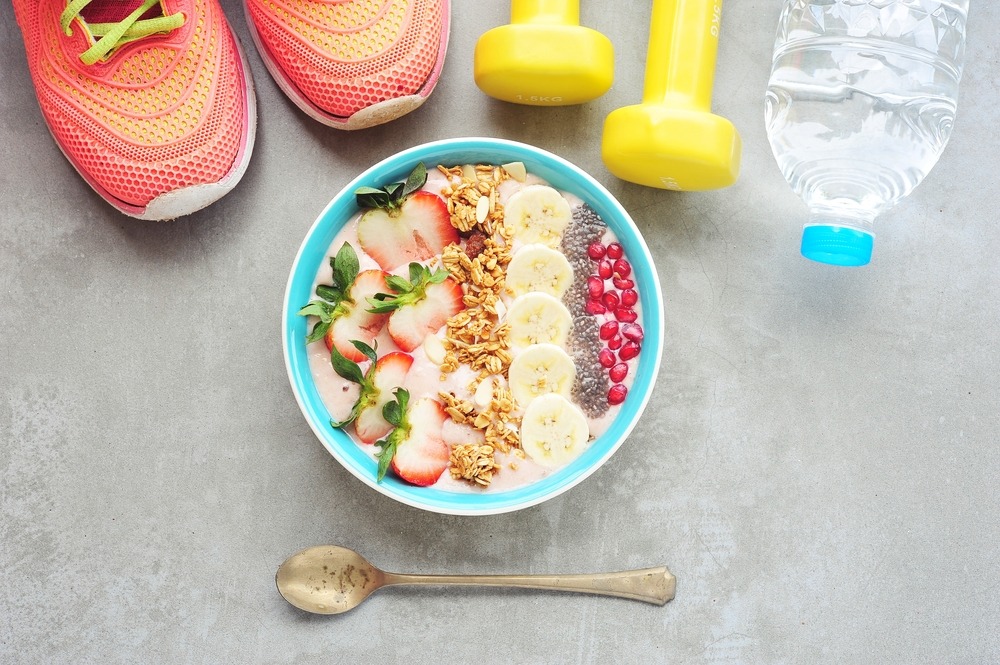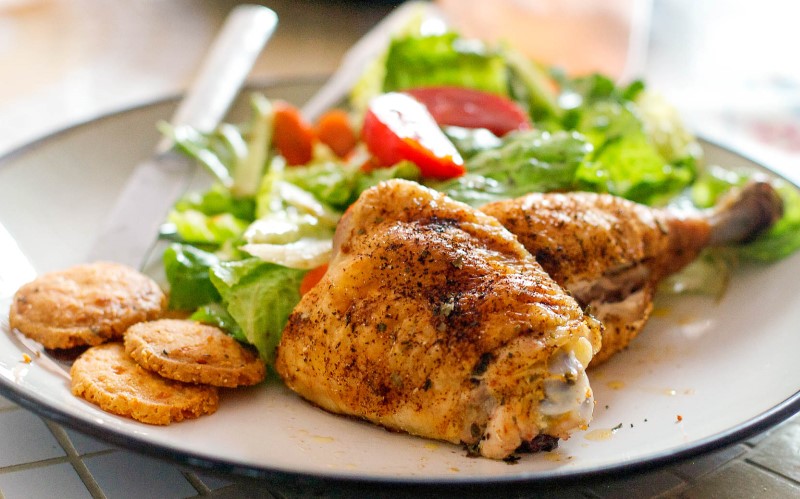Good Fats: Necessary in a Training Nutrition or not?

Raw Food Diet | REVIEW | Benefits – What you should watch
October 25, 2019
Nutrition for people following a training | Do’s & do nots
November 9, 2019The good fats and their importance in any diet are examined in today’s review.
The existence of good and poor nutrition is initially accepted for any person concerned either following an ordinary nutrition plan or an athlete applying a specialized diet.
Fat is always considered as a basic factor during any attempt for losing weight and reshaping the body. In fact is the first to be considered as responsible for failure of a diet plan.
However there are a few questions requiring an answer as:
- What the experts say?
- Do we need fats in our diet?
- And if so … How much? Never? Why?
Bad & Good fats
Foods should be classified so a better understanding is possible.
Fat is not necessarily a bad factor. Indeed there are “good” and “bad” fats. The former are necessary for our diet (whether an exercise plan is followed or not), while the latter are harmful and better be avoided.
Good fats, apart from their great nutritional benefits, are also an ideal way to give a strong taste to our boring and healthy dishes.
All these sound understandable, but why good fats are necessary?
According to nutrition and health experts, good fats contribute to proper heart functioning in a unique way, while at the same time play a key role in cellular development.
On one hand, good fats – those beneficial to body and health – are unsaturated fats, divided into 2 subcategories: monounsaturated & polyunsaturated fats.
MONOUNSATURATED FATS:
- pure virgin olive oil
- olives
- avocado
- nuts
- nut butter
- rapeseed oil
POLYUNSATURATED FATS:
- oily fish
- seeds
- vegetable oils
- margarine
On the other hand, bad fats – dangerous and harmful to health – are classified into saturated and trans-fats. These – as has been shown – play a catalytic role in increasing the cholesterol levels, while also promoting obesity and heart disease.
SATURATED FATS:
- cow butter
- cheese (all types)
- milk (full fat)
- fatty meats
TRANS FATS:
- processed foods
- pastries
- fast food
- ready meals
- fried foods
In addition to increasing bad cholesterol levels dramatically, they also lower good cholesterol levels, leading to serious health problems.
Useful TIPS for a nutrition with good fats
Number 1 : Put olive oil in your diet! Replace cow’s butter with pure virgin olive oil or even vegetable oil (sunflower or seed oil) or even margarine.
Number 2 : Opt for lean rather than fat meat. Poultry and fish are a first-class nutritional basis for good health. But even if red meat is preferred, always prefer lean portions.
Number 3 : Before consuming any manufactured food, meal or snack have a look at the nutrition label. There you will find detailed nutrition information regarding the meal.
Number 4 : Add whole grain meals in your daily diet, instead of the classic cereal.
Number 5 : Do not select as snacks carbohydrates (breads, crackers, toasts, bakeries), but yogurt (low fat), nuts, fruits and vegetables.
Fats, carbohydrates, proteins & valuable energy
In an effort to improve health and quality of life in recent years, people have been trying to incorporate physical activity into their weekly routine.
This is mainly done to balance sedentary lifestyle, work style and a lot of many health problems involved.
So just about every person, man or woman, is now engaged in any type of physical activity.
For some individuals a more relaxed exercise is applied (jogging, walking, yoga, pilates), while others perform a more systematic and vigorous training plan (aerobic training, bodybuilding, sports, running, championship).
Research shows that an increasing number of people are now interested in healthy nutrition and training.
However what is a “training diet”?
The nutrition applied to the course of any individual’s life shows or better indicates the level of its health and fitness.
Surely in the case of an athlete, the requirements are much higher. Nutrition should be well-structured and balanced, providing the athlete with all essentials for its body both BEFORE DURING and AFTER training.
Vitamins, precious minerals and trace elements, fiber, carbohydrates, good fats and natural proteins should be properly included in daily meals (depending on body’s needs at any time).
Carbohydrates may therefore be the main source of energy used by body to mobilize muscles, accompanied by a number of proteins and good fats, contributing to good muscle function and fighting against fatigue.
These fats should include preferably monounsaturated and polyunsaturated fats and not saturated and trans-fats.
Fat & Training nutrition
As already pointed out, proper nutrition – especially for those following regular training- is very important for improving the quality of training sessions.
Fat, in particular, is an important source of energy for body (which, as mentioned, covers 1/4 of daily energy).
In particular people engaged in activities and sports of low intensity but long duration (marathon runners) should pay more attention to fats included in their diet, unlike people involved in very dynamic short-term workouts (bodybuilding, HIIT, speed runners) where the primary source of energy comes from carbohydrates providing fast and high energy boost.
Another important reason mentioned about good fats in our diet is their contribution to cellular growth and development.
A big mistake made by a large number of people trying to get rid of body fat, unnecessary kilos and to physically shape their body, is to remove any fat from their diet.
This is a huge mistake. Good fats are essential especially in a workout diet because they promote muscle rebuilding, provide the necessary energy, fight fatigue and contribute to more efficient and dynamic workouts.
In addition, good fat helps maintain body temperature while it promotes better absorption of some very important nutrients and vitamins.
Fat : Before or After Workout?
As already mentioned, the type of training followed is very important in everybody’s life.
Any nutrition plan is structured according to the type of training to be applied.
So it is completely different to think of a diet for a sprint runner than that applied for a marathon runner.
However, in general, because fats delay a digestive function they are not recommended for high consumption before training … and especially before a short and high intensity workout.
The reason is that fats do not provide fast energy supply such as carbohydrates, so they do not have the necessary time to supply the body with energy in the case of a short training.
In a quite different way, when it comes to long time workouts and low demands, it is essential to provide long-term energy to body.
And what is the case for after-workout meals? As much as you believe that eating fat after your intense workout will contribute to the recovery in a negative way, this is wrong.
Surely it is not the most ideal but it is neither prohibitive, nor does affect the process of restoring your body after intense workout.
A protein and carbohydrate meal will help the body store glycogen and increase its protein synthesis playing a key role in muscle rebuilding.
Useful foods (special for athletes)
- chicken (breast)
- lean red meat
- fish (especially oily fish)
- greek yogurt
- shrimps
- eggs
- soybeans
- cottage cheese
- turkey (chest)
- beans
- chickpeas
- edamame
- scallops
- tofu
- nuts
- milk
- quinoa
- brown rice
- wild rice
The above foods promote muscle rebuilding while provide valuable energy to any person following an exercise program.
Bodybuilding : How I Increase my Weight With Proper Diet?
In particular athletes of bodybuilding, though they want to reduce their body fat, they also wish to increase their body weight and muscle mass.
This requires a more specific diet so no lack of energy is observed, preventing the muscle rebuilding process and burning of body fat at the same time.
Here is a number of helpful tips
No.1: Prefer foods of high nutritional value (without paying much attention to their calorie value).
No.2: Make sure that during the day you have frequent but small meals. This is how you get all the energy you need without storing fat in your body again.
No.3: Organize a diet and workout plan.
No.4: Avoid toppings, sauces and other high fat and calories but low in nutritional value foods or additives.
No.5: Beware of soft drinks and alcohol.
No.6: Make healthy meals with smoothies and shakes.
No.7: Do not ban your body of everything that really enjoys.
In regular times allow your organism something really desirable.
After all are sweets allowed?
Yes! Black chocolate is extremely beneficial for both the general health and, in particular, the health of an athlete.
Certainly, reference is made to black chocolate (not white or milk chocolate).
According to health experts, a small dose of black chocolate is not only allowed on a daily basis … but is also extremely beneficial.
Black chocolate benefits heart function and reduces blood pressure levels.
It also helps to reduce bad cholesterol levels, while it promotes brain function focus and mood, provides energy and antioxidant protection to body and fights free radicals and appearance of dangerous diseases (such as cancer).
So are high-fat diets good?
No. A high fat diet is not considered as a balanced diet plan, being bad for health of intestine.
Ideally – as already mentioned –in daily meals all nutrients should be properly combined and quantified. A specialist nutritionist may suggest a right way to eat depending on:
- physical condition
- body weight
- state of health
- goal set (weight loss, weight gain, muscle growth, health, energy)
- training pattern
- training frequency
- food preference
- daily habits
- lifestyle
- job requirements
- energy required
- cooking mode followed
- sleeping details (duration and mode)
- fatigue level








